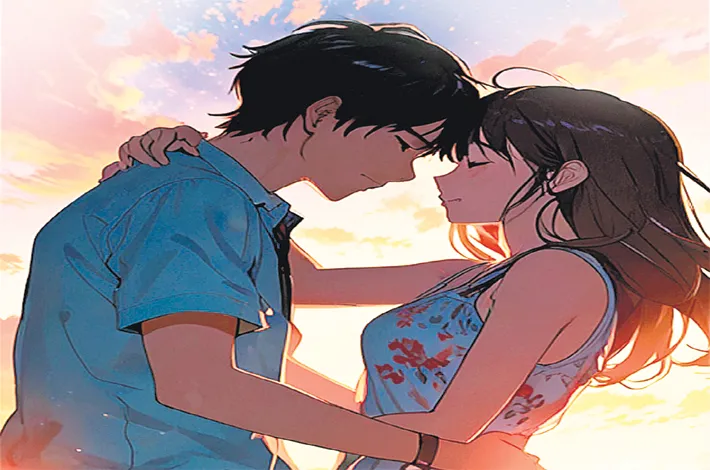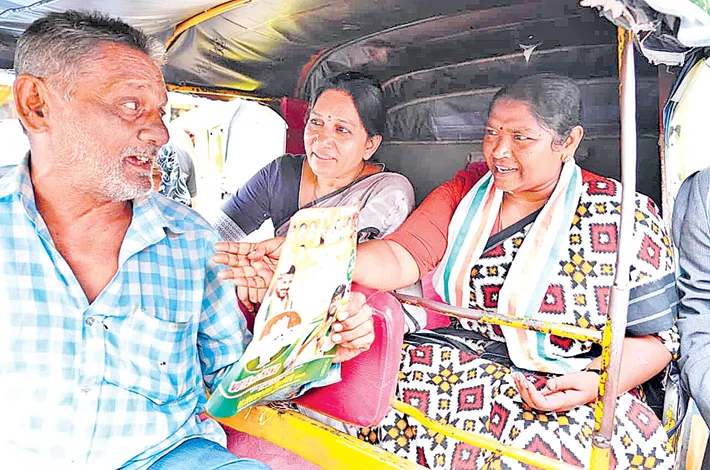The Melody of Eternal Love
30-06-2025 12:00:00 AM

The notes were unpolished, yet they carried a truth that Tansen’s grandeur couldn’t touch. The emperor’s eyes glistened; the courtiers whispered. Tansen, for the first time, bowed his head. “You sing not for glory, but for something greater,” he said. “You have won.” The court erupted in applause, but Baiju’s heart was elsewhere. He saw Gauri’s face in every note he’d played
In the heart of a dusty village in 16th-century India, where the Ganges flowed with secrets and the air hummed with the strains of ragas, lived Baiju, a young musician with a voice that could make the heavens weep. His days were spent under the ancient banyan tree, strumming his tanpura, weaving melodies that spoke of love, loss, and longing. The village revered him, but none more than Gauri, the potter’s daughter, whose eyes sparkled like the river under moonlight.
Gauri had loved Baiju since they were children, when he’d sing to her while she shaped clay into delicate pots. His voice was her solace, her dreams woven into every note. But Baiju’s heart burned with a different fire—a vow of vengeance. Years ago, his father, a court musician, had been humiliated and killed by Tansen, the legendary singer of Emperor Akbar’s court, for daring to challenge his supremacy. Baiju swore to master music and defeat Tansen, restoring his family’s honor. This oath consumed him, leaving little room for Gauri’s quiet devotion.
One evening, as the village glowed under a crimson sunset, Gauri found Baiju by the river, his fingers dancing on the tanpura’s strings. “Sing for me, Baiju,” she said softly, her voice barely louder than the water’s murmur. He smiled, his eyes distant, and began a raga that spoke of unfulfilled love. Gauri’s heart ached—she knew his music was not for her but for the ghost of his father’s defeat.
“Baiju,” she said, her hands trembling as she clutched a small clay diya, “your music is divine, but it carries so much pain. Can’t you sing for joy, for love?” Baiju’s fingers paused. “Gauri,” he replied, his voice heavy, “my music is my weapon. Until I defeat Tansen, I have no right to joy.” Her eyes brimmed with tears, but she lit the diya and placed it on the river, watching it float away, carrying her unspoken love.
Days turned to months, and Baiju’s obsession grew. He trained under a reclusive guru in the hills, mastering ragas that could summon rain or stir hearts to madness. Gauri, meanwhile, poured her love into her craft, shaping pots that bore the curves of her longing. She’d leave them at Baiju’s doorstep, each one etched with a lotus—a symbol of her heart, pure and waiting.
One day, news arrived that Emperor Akbar had summoned musicians to his court for a grand contest. Tansen, the unrivaled maestro, would judge. Baiju saw his chance. “I’ll go,” he declared, his eyes blazing. Gauri, standing silently among the villagers, felt her heart fracture. “Take this,” she said, pressing a small clay flute into his hands. “Play it when you forget who you are.” Baiju nodded, unaware of the weight of her words.
In Agra, the court glittered with opulence. Baiju, clad in simple cotton, stood out among the silk-robed musicians. Tansen, regal and imposing, watched from his throne beside the emperor. The contest began, and one by one, musicians faltered under Tansen’s piercing gaze. When Baiju’s turn came, he closed his eyes, thinking of his father, of Gauri’s diya on the river. His voice rose, a raga of such raw power that the court fell silent. Even Tansen’s stoic face softened.
But Tansen was no ordinary foe. He responded with a raga that seemed to pull the stars from the sky. Baiju faltered, his voice cracking under the weight of Tansen’s mastery. The court murmured, sensing his defeat. In that moment, Baiju’s fingers brushed the clay flute in his pocket. Gauri’s words echoed: Play it when you forget who you are. He raised the flute to his lips, and a simple, soulful melody filled the hall—not of vengeance, but of love, of home, of Gauri’s laughter by the river.
The notes were unpolished, yet they carried a truth that Tansen’s grandeur couldn’t touch. The emperor’s eyes glistened; the courtiers whispered. Tansen, for the first time, bowed his head. “You sing not for glory, but for something greater,” he said. “You have won.” The court erupted in applause, but Baiju’s heart was elsewhere. He saw Gauri’s face in every note he’d played.
He returned to the village, his vow fulfilled, but his soul restless. Under the banyan tree, he found Gauri, her hands covered in clay, shaping a pot with a lotus carved into its side. “Gauri,” he said, his voice softer than ever, “I was blind. I chased a shadow and forgot the light you gave me.” She looked up, her eyes searching his. “Your music was always enough, Baiju. It was your heart I wanted.”
He took her hands, the clay smudging his fingers, and sang—a raga of love, not vengeance. The village gathered, entranced, as the melody wove their story into the night. Gauri smiled, her diya glowing on the river, no longer adrift but anchored by his voice. Under the stars, Baiju and Gauri found their eternal melody, one that needed no court, no contest, only the quiet rhythm of two hearts beating as one.








